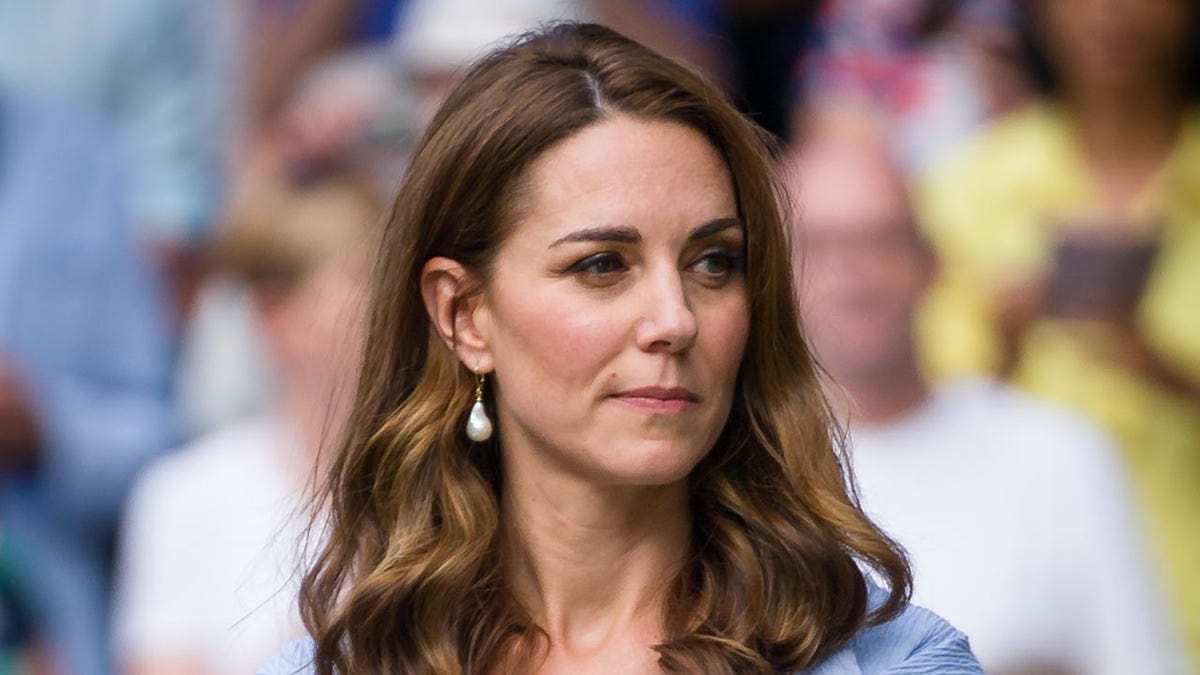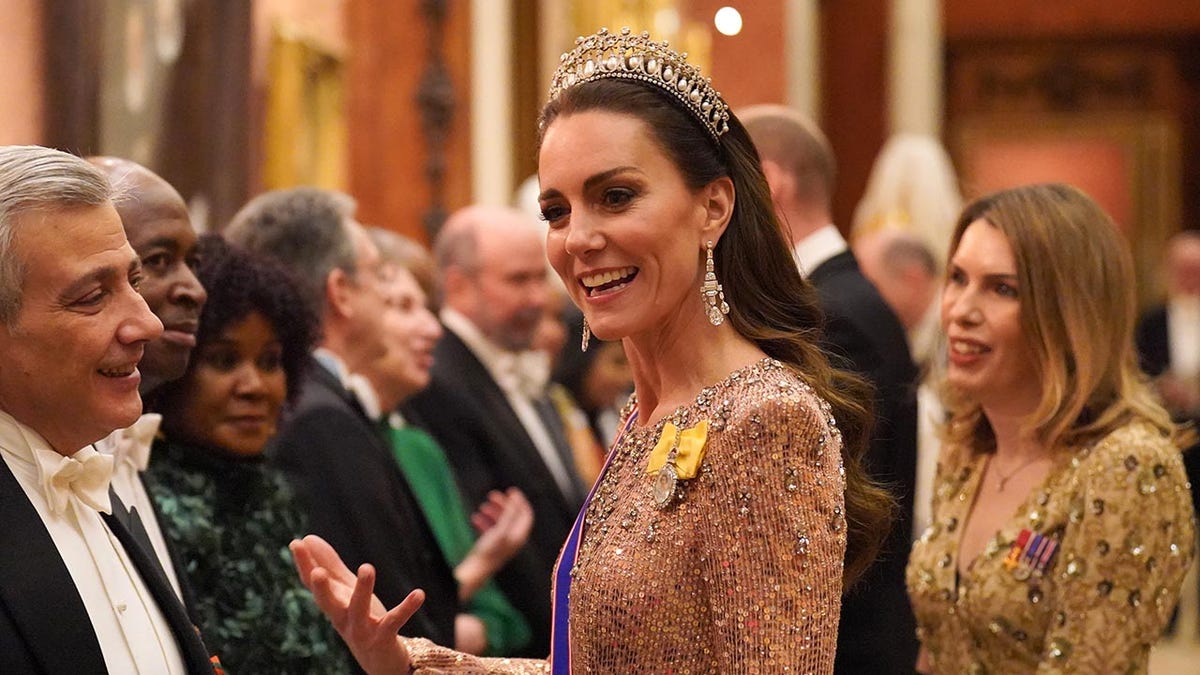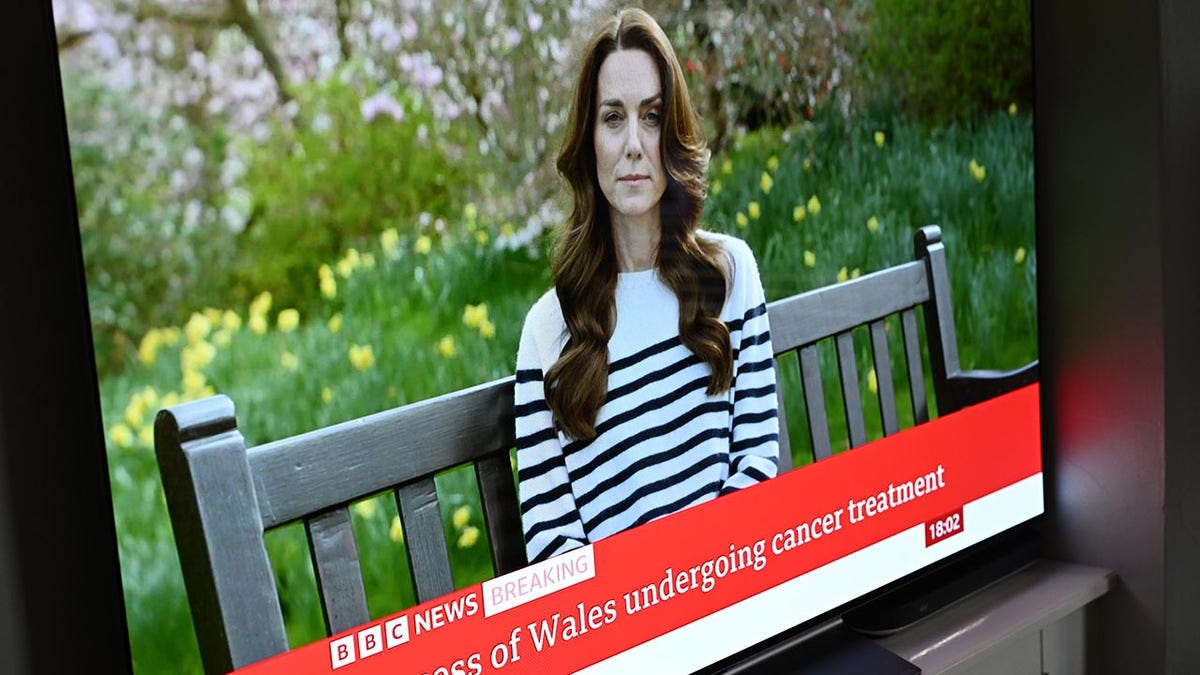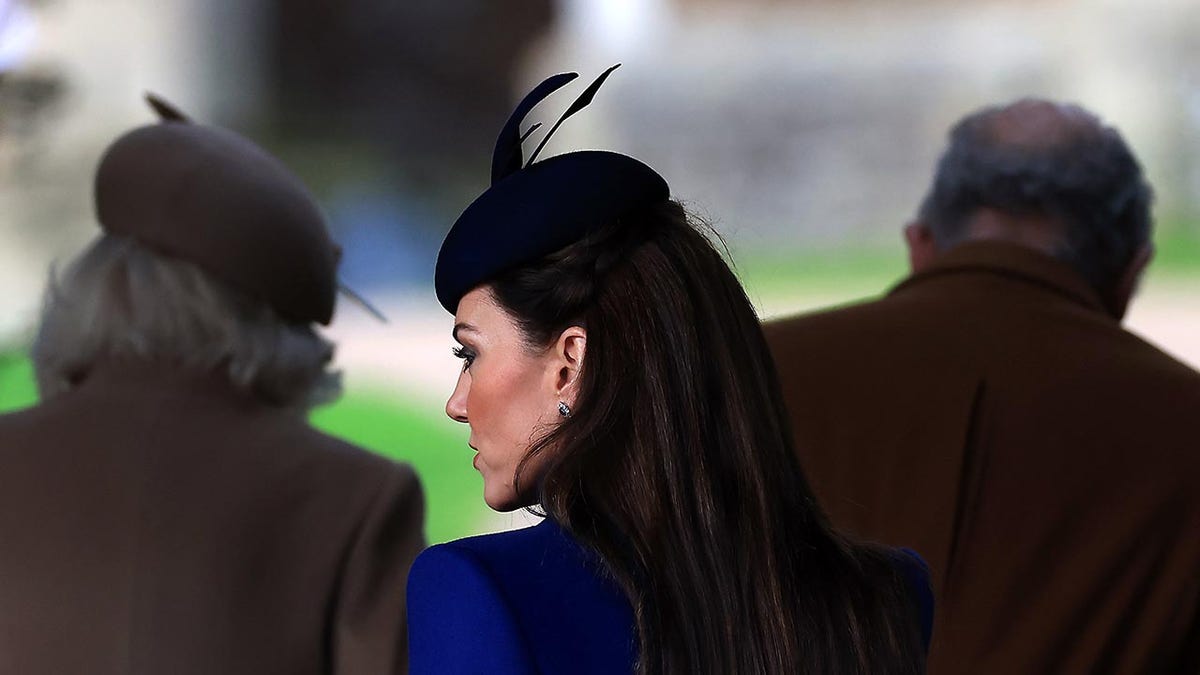Kate Middleton conspiracy theories exploited by Russian disinformation campaign to amplify agenda: university
Conspiracy theories that took over social media amid Kate Middleton’s mystery health situation — before she revealed her cancer diagnosis last week — were amplified by Russian disinformation campaigns, according to security researchers at Cardiff University in Wales.
While there was legitimate concern for the Princess of Wales’ health and her whereabouts while she was recovering from a “planned abdominal surgery” in January, and privately beginning chemotherapy treatments, Kremlin contractors were also taking advantage of the frenzy around the royal to promote pro-Russian and anti-Ukrainian narratives.
“We have a long-term program of research looking at disinformation and information manipulation online and what we did in this particular case was we were monitoring the traffic around the story about the Princess of Wales and we noticed some unusual spikes in the traffic,” Professor Martin Innes, Cardiff University’s Security, Crime and Intelligence Institute director, told ABC Australia radio host Patricia Karvelas.
Innes said when their researchers looked into the spikes more closely, “we saw some unusual patterns of activity and behavior on a number of accounts that we recognized from having looked at a particular Russian disinformation group before.”

Conspiracy theories that took over social media amid Kate Middleton’s mystery health situation – before she revealed her cancer diagnosis last week – were amplified by Russian disinformation campaigns, according to security researchers at Cardiff University. (Andy Cheung/Getty Images)
He added, “The group in question has been around for several years now, and it’s quite well-known in the open-source research community. What they were doing in this particular example was they were taking advantage of the massive amount of interest that there was in the story.”
He said rather than posting original content themselves about the princess’ health, “they would find popular posts, and then they would reply to those posts, inserting their own content into the comments and replies.”
He continued, “Typically, the content would either be denigrating Ukraine and celebrating Russia’s achievements in the war or talking up the integrity of the recent Russian election.”
KATE MIDDLETON’S CANCER ANNOUNCEMENT VIDEO FEATURED SYMBOL OF HOPE IN FIGHT AGAINST DISEASE
Interest in Middleton’s health turned into a frenzy soon after Kensington Palace announced on Jan. 17, that the princess had undergone a “planned abdominal surgery” and would postpone her public engagements until Easter.
To quell the rumor mill, on March 10, the princess posted a photo of herself with her children, wishing Brits a happy Mother’s Day. News agencies like the Associated Press deemed the photo to be “manipulated” and pulled it, saying it didn’t meet their journalistic standards.

Conspiracy theories over Kate Middleton’s health grew to a fever pitch over the last couple of months. (Jonathan Brady – Pool / Getty Images)
PRINCE WILLIAM ‘SIMMERING’ OVER KATE MIDDLETON HEALTH SPECULATION, IS ‘BOUND TO CRACK’: EXPERT
Despite Middleton’s admission that she sometimes likes to “experiment with editing,” the photo further inflamed already out-of-control conspiracy theories.
The rumors only began to die down after the princess delivered a video message on March 22 that she had been diagnosed with cancer.
Innes told NBC News and The New York Times, that the researchers had identified 45 social media accounts that were linked to the Russian disinformation group Doppelgänger.
He also noted that the group didn’t start any of the conspiracy theories, but rather seized on them.
LIKE WHAT YOU’RE READING? CLICK HERE FOR MORE ENTERTAINMENT NEWS
“It’s not as though these Russia-linked accounts were driving the story; they were jumping on it,” he told NBC News. “It was already being framed in conspiracy terms, so foreign actors don’t need to set that frame — that’s already there to exploit.”

Kate Middleton announced she has cancer in a video message on March 22. (Leon Neal/Getty Images)
Innes explained that replying to posts rather than creating original content is strategic because it makes it harder for social media platforms to regulate their comments.
“They obviously have an ideological agenda, but what’s interesting about this group is they’re not part of the state security services, which is some of the actors we’ve been seeing behind other disinformation campaigns,” he told ABC Australia. “They are commercial organizations contracted by the Kremlin to deliver social media messaging for them a bit like sort of a dark PR firm.”
CLICK HERE TO SIGN UP FOR THE ENTERTAINMENT NEWSLETTER
Innes explained that along with an ideological agenda, the campaigners also want to get paid. He said they would try to meet their “performance indicators” by “jumping on popular stories and hijacking those.”
He said, “Not only did they manage to kind of push the narratives they want, they’re also interested in fulfilling their contract, and it’s an ideal and quite easy way for them to hit their performance targets.”

Kate Middleton’s absence from the public eye created a vacuum in which social media conspiracy theories thrived. (Stephen Pond/Getty Images)
Innes told NBC News that the group’s focus is on “destabilization” and “undermining trust in institutions” such as government, the monarchy and media.
CLICK HERE TO GET THE FOX NEWS APP
“The amount of attention on the story of the Princess of Wales has been enormous and so, just by inserting your messages and jumping on certain hashtags like that you can, particularly if you’re persistent and keep going with it, you can get a lot of eyeballs and a lot of attention to some of the messaging that you want to put across,” he told ABC Australia.
The Wales-based researchers also identified dark PR firms working out of Pakistan, Indonesia, and other countries, using the frenzy around the princess to amplify ther own agendas.
“And this is quite a regular occurrence now, really every hot political, celebrity story tends to attract this kind of attention,” he warned. “It’s almost like they function as magnets for people who want to grow their number of followers and get attention for the messages they want to put across.”


